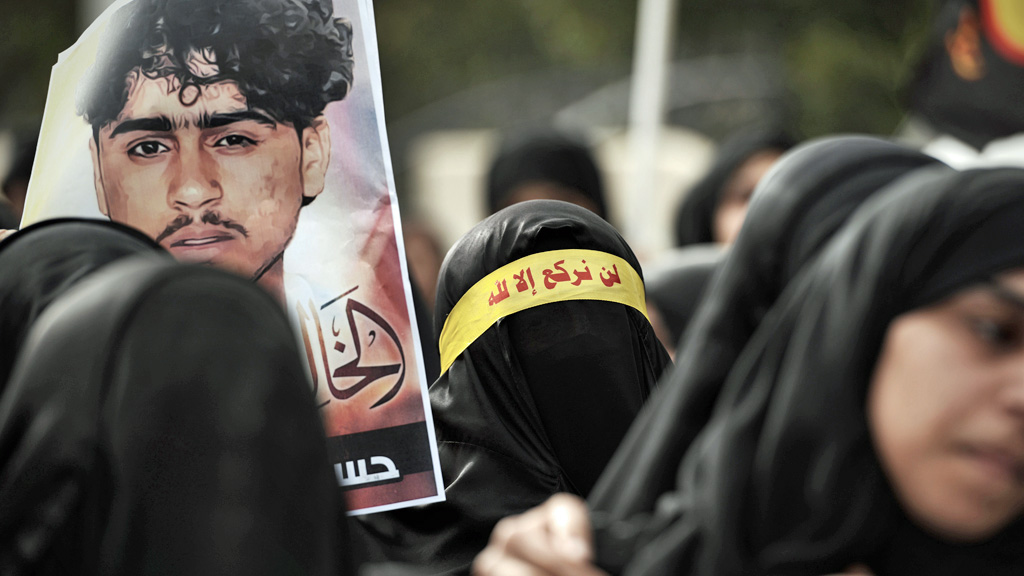Is grand prix a lose-lose race for Bahrain’s royal family?
Bahrain’s royal family faces a lose-lose situation ahead of the grand prix: cancel it and lose face, or let it proceed and become a hook for adverse media coverage, writes activist Dr Ala’a Shehabi.

Mourners at the funeral procession of Hussain Sharaf (Getty Images)
That Formula 1 is not popular in Bahrain is almost stating the obvious, but there is one thing that protesters have in common with the sport: burning tyres. To avoid the frequent billowing black clouds from tyre burnings in street protests, the Bahrain grand prix this year will be held at night, writes Dr Ala’a Shehabi.
All this week, protests have taken place in the country calling for a boycott of “Formula Blood”, particularly following the death of a 21-year-old protester, Hussain Sharaf, who died in a fire which, according to the family, local fireman refused to put out.
For another view, read: has Bahrain's human rights situation really improved?
Repressive crackdown
Human rights activists have documented the escalation in the repressive crackdown ahead of each race. According to the Bahrain Centre for Human Rights, there are nearly 4,000 political prisoners, including Nabeel Rajab, one of the most prominent human rights activists in the Gulf.
In a letter signed by six local human rights groups to FIA President John Todt calling for the suspension of the race, he responded by saying the FIA “has no legitimate right to become embroiled in the internal affairs of any sovereign state. Political questions must be addressed by the appropriate political bodies, not sporting ones.”
Bahrain’s protest movement is at a dangerous crossroads. The peaceful struggle has effectively been crushed.
However, sporting events in Ukraine, Russia, Qatar, as well as Bahrain, have ruptured the myth that sports and politics can be dissociated, and more often than not the negative attention created overcomes the positive “reputational” benefits that hosting the event is supposed to create.
Bernie Ecclestone’s proclamations last year, that the ruling Al Khalifa family is “stupid” to insist on the Formula 1 race, given the controversy and negative publicity, is not such a brash remark.
Negative returns
It is, indeed, a lose-lose situation for the royal family. If they do cancel the race, it’s a major defeat in their political legitimacy attempt, and if they don’t and the race goes ahead, it becomes an important hook for the media to cover the protests and repression, going against the raison d’etre of hosting such a costly event in the first place.
After three years of engineered repression and the use of a large cadre of western security and PR consultants that have tried to give the image of “reform” in the security force, Bahrain’s protest movement is at a dangerous crossroads. The peaceful struggle has effectively been crushed.
Despite that, two key campaigns over the past year managed to block a shipment of 3 million tear gas canisters headed to the country from South Korea (about four canisters per Bahraini), and another campaign named and shamed members of the royal family responsible for human rights violations, including the king, the crown prince, and the prime minister, who has been in power for 43 years.
The key investment priority for the Bahraini regime appears to be the Formula 1 race, and stockpiling tear gas. Both investments have clearly only produced negative returns.
Dr Ala’a Shehabi is a Bahraini writer, pro-democracy activist and co-founder of www.bahrainwatch.org